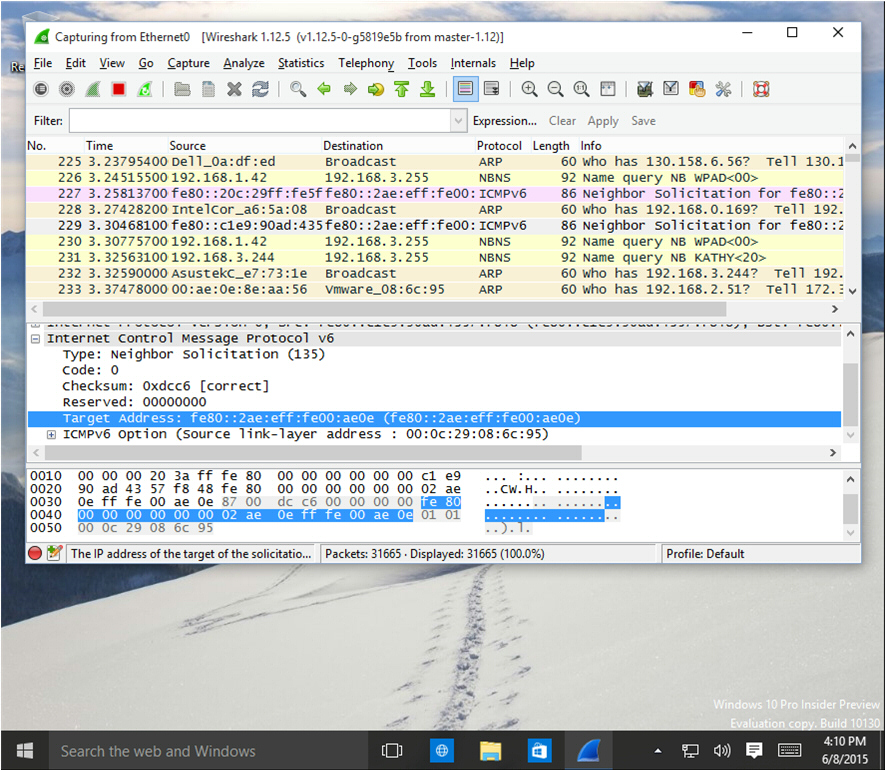Win10Pcap is an up-to-date WinPcap-based Ethernet packet capture library.
The original WinPcap library has been a spectacular success, but development stalled long ago, and as we write the last item on the news page is dated 8th March 2013.
Win10Pcap takes much of the same code, but makes it compatible with the latest NDIS (Network Driver Interface Specification) driver model for improved stability.
The developer also reports the following new features.
- Win10Pcap supports capturing IEEE802.1Q VLAN tags.
- Win10Pcap fixed the NICs enumeration bug on original WinPcap. WinPcap can enumerate only NICs which were existing on the boot time. Any NICs which are added after the boot time cannot be enumerated. Win10Pcap can enumerate all existing NICs correctly, including NICs which are added after the boot time.
- Win10Pcap supports Jumbo Frames up to 10,000 octets.
You don't have to understand or even know about these low-level details, fortunately. If you're running Windows 10 and have an application which requires WinPcap, just install Win10Pcap instead. It's binary-compatible and should work immediately.
Verdict:
WinPcap certainly needs an update, but it's hard to say whether Win10Pcap will solve problems via its NDIS 6.x model support, or introduce new ones with its code changes. We would say stick with WinPcap for the most part, as it'll usually work, even on Windows 10, but consider trying Win10Pcap if you run into difficulties.





Your Comments & Opinion
Monitor your network and internet traffic in real time
Monitor your network and internet traffic in real time
Monitor and save your network traffic
Recover lost passwords from network traffic
Capture and monitor network traffic
View network traffic, system events, more
Get Ping, Traceroute, Telnet, ARP, DNS, WhoIs and many other network functions in a single portable tool
Easy wi-fi discovery and surveying
Remotely control or access another computer over the internet
Remotely control or access another computer over the internet
Remotely control or access another computer over the internet
Create a private network with this free and secure VPN tool